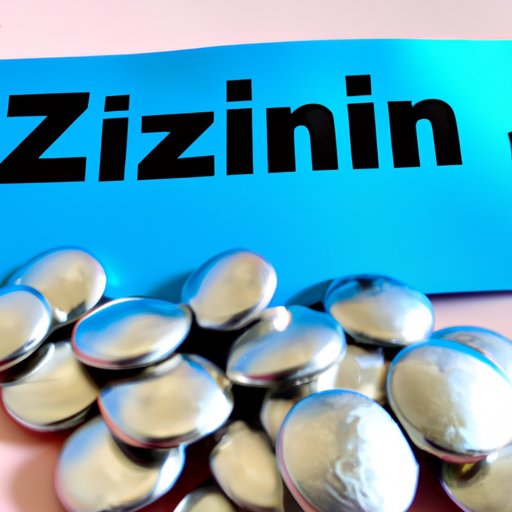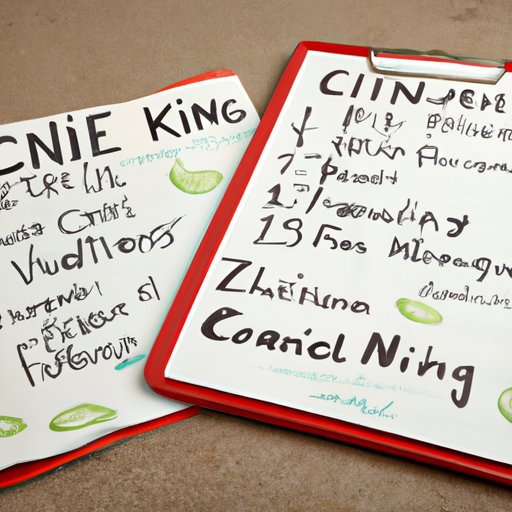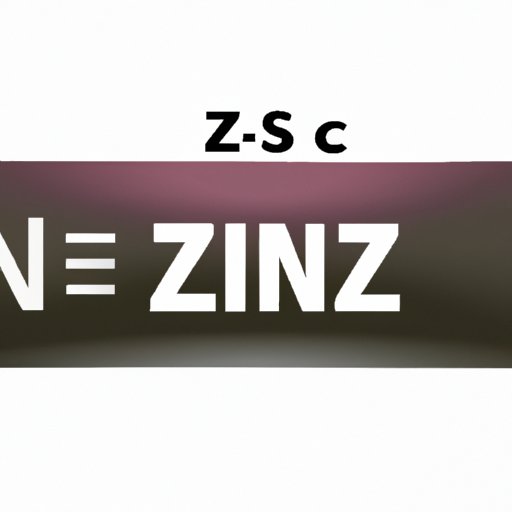Introduction
Zinc is an essential trace mineral found in every cell of the human body. It plays an important role in many bodily functions, including immune system support, skin health, cognitive function, bone health, and reproductive health. In this article, we’ll explore why zinc is an essential trace mineral and what it does for the body, as well as the best food sources of zinc, signs of zinc deficiency, and how much zinc you should be getting each day.
Why Is Zinc an Essential Trace Mineral?
Zinc is an essential trace mineral because it’s necessary for the functioning of hundreds of enzymes in the body. It helps regulate hormones, aids in digestion, and helps the body absorb other minerals like iron and copper. Zinc also plays a key role in the body’s immune system, helping to protect against infection. Without adequate zinc, the body cannot function properly.

Health Benefits of Zinc for the Human Body
Zinc has many health benefits for the human body. Here are some of the most important ones:
Immune System Support
Zinc plays an important role in the functioning of the immune system. It helps the body fight off infections and viruses by stimulating the production of white blood cells. Studies have also shown that zinc can reduce the severity and duration of colds and other illnesses.
Skin Health
Zinc is essential for healthy skin. It helps promote wound healing and can reduce inflammation. Zinc also helps protect the skin from damage caused by ultraviolet light from the sun.
Cognitive Function
Zinc is important for cognitive function. It helps support learning and memory, and may even help protect against age-related cognitive decline. Zinc is also essential for proper brain development in infants and children.
Bone Health
Zinc is important for maintaining healthy bones. It helps the body absorb calcium, which is essential for strong bones. Zinc also helps the body produce collagen, which is important for healthy joints and tendons.
Reproductive Health
Zinc plays an important role in reproductive health. It helps the body produce testosterone, which is essential for normal sexual development and fertility in men. Zinc is also important for women, as it helps regulate menstrual cycles and can reduce symptoms of PMS.
Foods Rich in Zinc
The best way to get enough zinc is through your diet. Here are some of the best food sources of zinc:
Shellfish
Shellfish, such as oysters, clams, crab, and lobster, are excellent sources of zinc. Just 3 ounces of cooked oysters provides more than 500% of the recommended daily value of zinc.
Dairy Products
Many dairy products, such as milk, yogurt, and cheese, are good sources of zinc. A cup of whole milk contains about 8% of the recommended daily value of zinc.
Nuts and Seeds
Nuts and seeds, such as almonds, cashews, and pumpkin seeds, are good sources of zinc. A handful of almonds, for example, contains about 4% of the recommended daily value of zinc.
Legumes
Legumes, such as beans, peas, and lentils, are also good sources of zinc. A cup of cooked lentils, for example, contains almost 20% of the recommended daily value of zinc.
Whole Grains
Whole grains, such as oatmeal and brown rice, are also good sources of zinc. A cup of cooked oatmeal, for example, contains about 7% of the recommended daily value of zinc.
Meat and Poultry
Meats and poultry, such as beef, chicken, and turkey, are also good sources of zinc. A 3-ounce serving of cooked beef, for example, contains about 33% of the recommended daily value of zinc.
Signs of Zinc Deficiency
If you don’t get enough zinc from your diet, you may experience signs of zinc deficiency. These include:
Immune System Issues
Zinc deficiency can lead to a weakened immune system, making you more susceptible to illness and infection.
Poor Wound Healing
Zinc helps the body heal wounds, so a lack of zinc can make it harder for the body to heal cuts and scrapes.
Hair Loss
Zinc helps keep hair healthy, so a lack of zinc can lead to hair loss.
Diarrhea
Zinc helps the body absorb nutrients, so a lack of zinc can lead to diarrhea.

Recommended Daily Intake of Zinc
The recommended daily intake (RDI) of zinc for adults is 8 milligrams per day for women and 11 milligrams per day for men. If you’re pregnant or breastfeeding, your RDI may be higher. Talk to your doctor to find out how much zinc you should be getting each day.
Potential Side Effects of Taking Too Much Zinc
It’s possible to take too much zinc, which can lead to a number of unpleasant side effects. These include nausea, vomiting, stomach pain, and diarrhea. Long-term use of high doses of zinc can also lead to copper deficiency and anemia. To avoid these side effects, it’s important to stick to the recommended daily intake of zinc.
Summary
Zinc is an essential trace mineral found in every cell of the human body. It plays an important role in many bodily functions, including immune system support, skin health, cognitive function, bone health, and reproductive health. The best way to get enough zinc is through your diet, with shellfish, dairy products, nuts and seeds, legumes, whole grains, and meat and poultry being the best sources. Signs of zinc deficiency include immune system issues, poor wound healing, hair loss, and diarrhea. The recommended daily intake of zinc for adults is 8 milligrams per day for women and 11 milligrams per day for men. Taking too much zinc can lead to unpleasant side effects, so it’s important to stick to the recommended daily intake. Overall, zinc is an essential trace mineral that plays an important role in many bodily functions and should be included in your diet for optimal health.
(Note: Is this article not meeting your expectations? Do you have knowledge or insights to share? Unlock new opportunities and expand your reach by joining our authors team. Click Registration to join us and share your expertise with our readers.)
